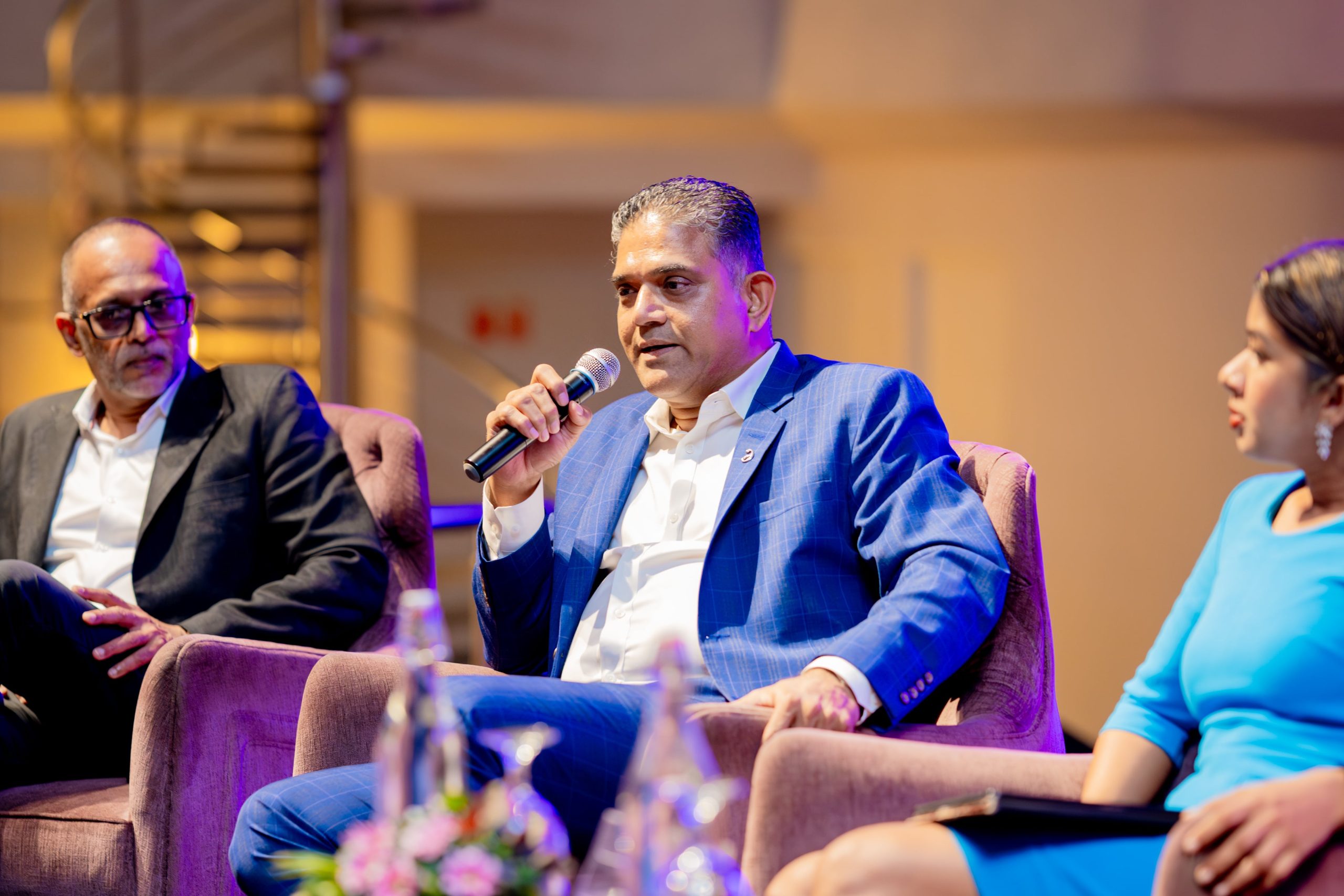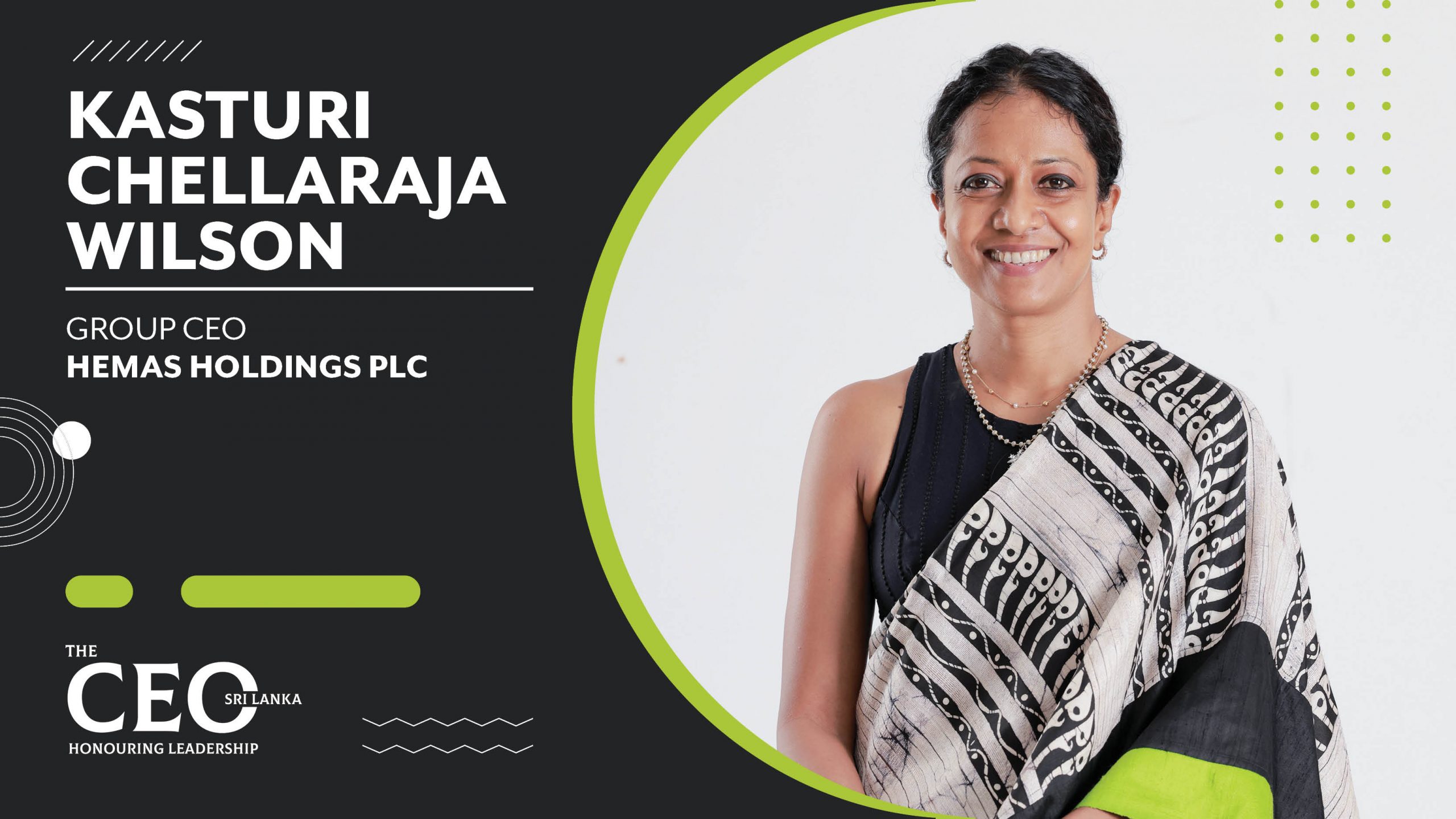Can you briefly describe your journey at Hemas?
I started at Hemas 20 years ago as General Manager Finance and today I am the Group CEO. Over the last two decades, I held six roles in the company in various areas. Except for the first role which I was technically qualified to do, because I’m an accountant by profession, everything else was in other functions and industries. Hemas as an organization is gender blind, and they believe in finding the right person for the right role. If you are competent and have the capability, you are given the opportunity. Even 20 years ago, before there was any focus on diversity, Hemas had this culture and I flourished in it.
Hemas is also an organization that believes families matter. When I joined Hemas, my kids were very young, and I was a single mother. I always said that my kids came first, which they understood and supported. I was allowed to be the mom I wanted to be, and they let me thrive in that value system. It has been a journey where I’ve been able to expand my horizons and discover new things. I guess, when you see other people having faith in you to try something new, you are more confident to take that leap of faith.
What is Morison’s importance in the Group vision?
The Hemas Group’s purpose is to make healthful living happen. We are a truly Sri Lankan company, and we believe that we need to positively impact the society at large.
For the past 70 years, Hemas has been the leading importer of pharmaceuticals with some of the world’s top most pharmaceutical manufacturers partnering with us, to ensure that we bring the best of science and quality to Sri Lanka. However, we saw immense value and potential in expanding to pharmaceutical manufacturing, and in 2013 therefore we acquired Morison, a pioneer in pharmaceutical manufacturing with over 60 years’ experience. Thereafter, when we wanted to build a new pharma manufacturing facility, we wanted to be the pioneer who brings in the best quality to the country and changes the healthcare landscape in Sri Lanka. As a result, we have made the largest investment to date in the local pharma manufacturing industry in building the first and largest WHO Good Manufacturing Practices (GMP) and EU GMP compliant general oral solid and liquid dosage manufacturing plant in Sri Lanka.
EU GMP certification is a process which ensures that your processes, technology, and quality standards are at globally accepted standards. We will also partner with our foreign pharma principals for contract manufacturing, and our long-term vision is to venture into the export market.
Can you tell us about Morison’s contribution to the growth of local pharmaceutical manufacturing to date?
Morison has been trusted over generations for their flagship over-the-counter brands such as Morison’s Gripe Mixture, Lacto Calamine and Valmelix. However, what most don’t know about Morison is that they have also been a pioneer in pharmaceutical manufacturing since setting up their first plant at Mutwal in 1959. Today, we are one of the largest suppliers to the Government through the buy-back agreement. Also, in the latest data of IQVIA, the leading global provider of pharmaceutical data, Morison stands as the largest supplier to pharmacies in Sri Lanka by volumes, through their bulk product range under the MSJI umbrella brand.
But most importantly, what we are most proud of and we as Hemas stand behind is, the contribution that we want to make through our new pharma manufacturing facility at Homagama, for which we are currently awaiting regulatory approvals to commence commercial manufacturing.
What steps do you plan to take to advance the future of the local pharmaceutical manufacturing industry?
We will ensure that the medicine we are manufacturing will be of the best quality, going head-to-head with global manufacturers. Our promise to our consumers will be that we will give you a product that is coming from a local plant you can be proud of, with quality on par with top global brands at a much more affordable price.
At the same time, we will ensure that we take the necessary steps towards advancing the pharma manufacturing industry in Sri Lanka. Morison is the first to sign up for contract manufacturing with some of the best brands in the region. Manufacturing global brands in our facility will expose our teams to the industry best practices followed globally, enabling us to expedite knowledge transfer.
We want to export and contribute to the country and make Sri Lankan brands recognized as per global quality standards in export markets. We plan to enter markets through contract manufacturing where the market access comes through our principals, and eventually when we have some unique products of our own, we will be using these channels to explore further export opportunities.
What are your current challenges in this journey?
The biggest challenge, like in any industry is the consistency in Government policies. Before we invested in the new plant, we had a guaranteed buy-back agreement with the Government to supply to state hospitals. Now we see that some of those agreements are not being honoured, and the fact that you have policy changes halfway through is quite unsettling, as investments were made based on these assumptions.
We also need to change the mindset of our key opinion leaders and consumers and make them aware that ‘Made in Sri Lanka’ doesn’t mean inferior quality, and that the quality of pharmaceuticals manufactured in Sri Lanka can be equal to that of leading global brands.
In addition, the pharmaceutical regulatory environment needs to be more responsive. Their knowledge of the larger context and providing regulatory approvals on time is essential, as approval delays have a high financial impact. The fact that returns get impacted due to delays of the Government regulatory framework is something we need to address.
What are your thoughts on the status of women in business, particularly in Sri Lanka?
Sri Lanka has benefited from having women succeed in different roles; unfortunately, we have not had enough of that. From a business standpoint, the diversity and views a woman brings to the table, their strengths in compartmentalizing, catalyzing, and multitasking are advantageous. Most importantly, the empathy level, intuition they bring in and clarity of thought, are few things we should build on. At present, with the lockdowns and work being more digital, I believe more young women can start coming into the workforce and bring out the leader in themselves. I think the most significant thing is that you have to find that leader in you and not apologize for being strong.
At Hemas we have women in their mid-20s to 30s in senior leadership positions. As I said before we are gender blind, and any individual who has what it takes, who wants to make it, who’s talented and willing to collaborate, the space and opportunities are given. We are now consciously looking at roles that were not held by women before, like the role of the sales representative. If it’s a female who needs support to navigate her family life, we do that because here we think families matter. We know women need extra help, because culturally they still can’t let go. Being a mother and taking ownership of the caregiver’s responsibility at home is something we can’t control; however, we can maintain the narrative here and therefore we extend them an extra helping hand.
An inspiring story from you for the young females out there?
Life is a journey. There will be challenges, and it will come to each of you in different forms and shapes. But remember one thing; know your worth and don’t give up your authentic self. Be true to yourself. Push through barriers; you don’t have to apologise for being yourself, for being a woman or a mother. You find the right environment which will get the best out of you, and at that point you need to trust yourself, go out there and unleash your potential.


